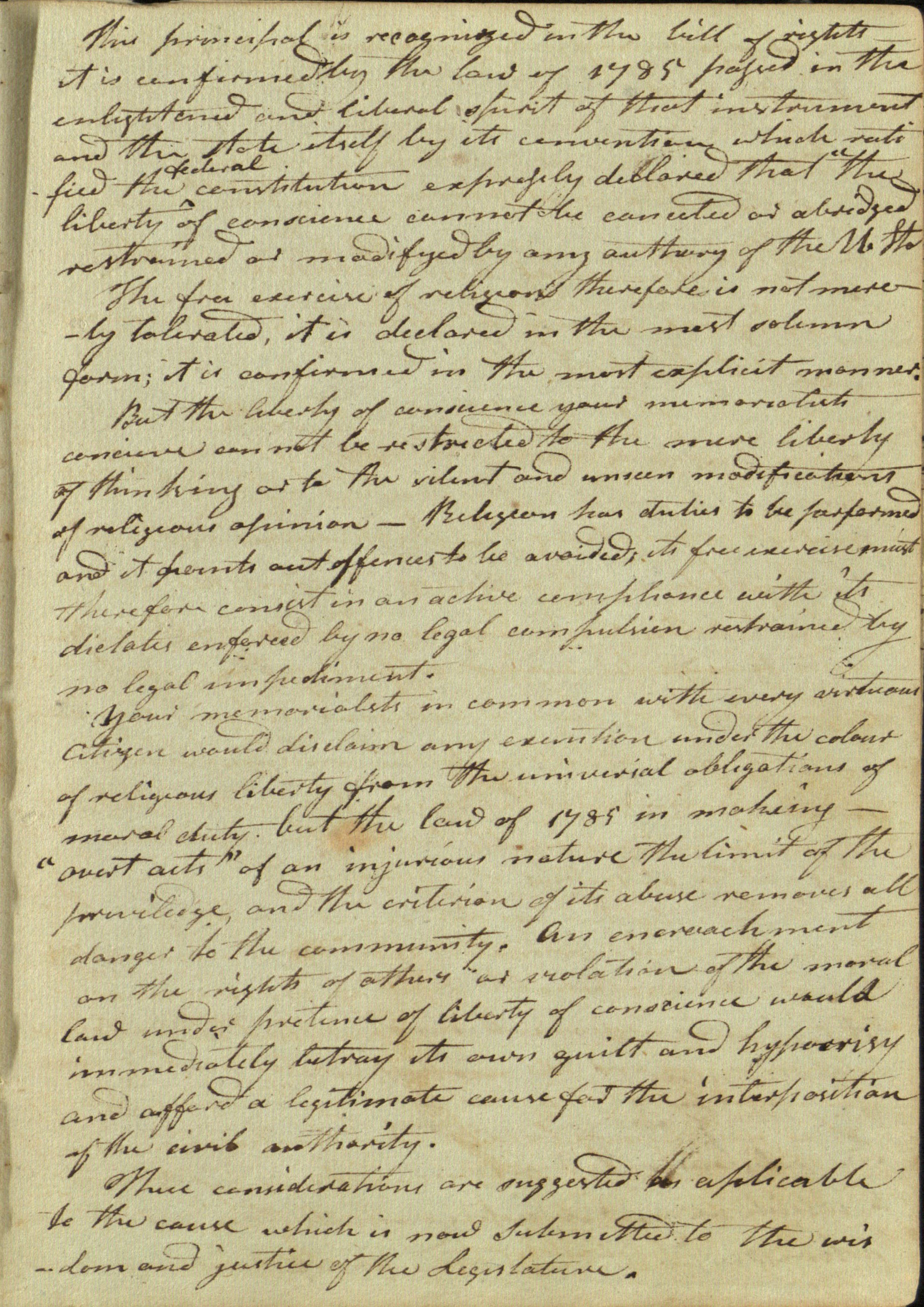This principal is recognized in the bill of rights
it is confirmed by the
law of 1785 passed in the
enlightened and liberal spirit of that
instrument
and the state itself by its convention which rati
-fied the
federal constitution explicitly declared that “the
liberty of conscience
cannot be canceled or abridged
restrained or modified by any authority of
the U. St.
The free exercise of religion therefore is not mere-
-ly tolerated, it is
declared in the most solemn
form; it is confirmed in the most explicit
manner.
But the liberty of conscience your memorialists
conceive cannot be
restricted to the mere liberty
of thinking or to the violent and unseen
modification
of religious opinion – Religion has duties to be
performed
and it points out offences to be avoided; its free exercise
must
therefore consist in an active compliance with its
dictates
enforced by no legal compulsion restrained by
no legal impediment.
Your memorialists in common with every virtuous
citizen would disdain any
execution under the colour
of religious liberty from the universal
obligations of
moral duty but the law of 1789 in making –
“overt acts”
of an injurious nature the limit of the
privilege and the criterion of its
abuse removes all
danger to the community. An encroachment
on the
rights of other as evolution of the moral
law under pretence of liberty of
conscience would
immediately betray its own guilt and hypocrisy
and
afford a legitimate cause for the interposition
of the civil authority.
More considerations are suggested as applicable
to the cause which is now
submitted to the wis
-dom and justice of the Legislature.

